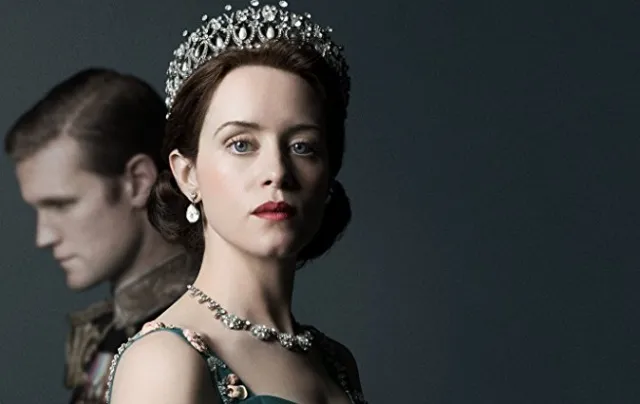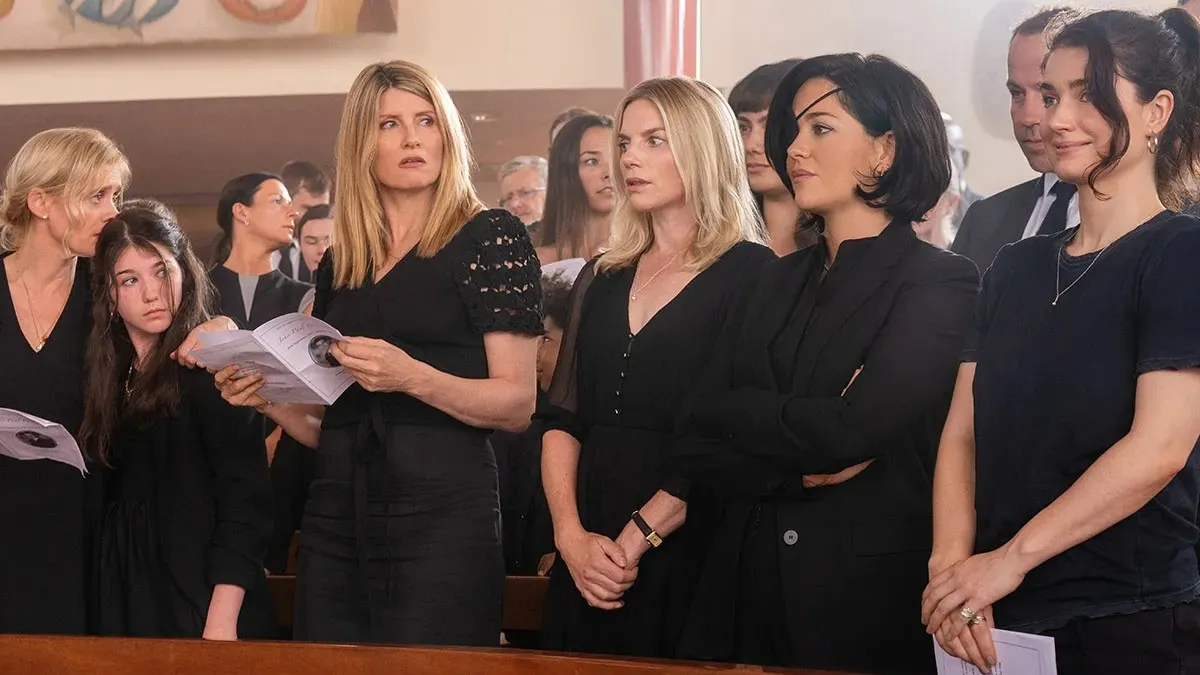[SPOILERS FOR SEASON TWO OF THE CROWN and some historical facts]
I don’t think Netflix’s The Crown could have asked for a better advertisement than the Royal Engagement between Prince Harry and Meghan Markle. If anything illustrates how much the monarchy has changed since the events on the show, it’s this real-life engagement. I devoured the series this weekend, and I felt it was an excellent sequel to season one, especially if giving some depth to its “characters” and exploring the series more deftly as both a political and family drama.
Queen Elizabeth: Women in Power
Claire Foy sells every bit of Elizabeth II’s strength and vulnerability this season in several scenarios that really illustrate why Elizabeth, and not Margaret, is fit to be Queen. Elizabeth can see the bigger picture; she’s willing to sacrifice herself and her dignity in many ways to preserve what she has inherited. Margaret insults her, saying that Elizabeth has “disappeared inside the Crown.” Well, hon, that’s the damn and she does it well. Throughout the season, Elizabeth has to deal with personal criticisms from the public, Jackie Kennedy, and Phillip, all while keeping her face clear of emotions.
When Jackie Kennedy comes to London as First Lady, Elizabeth feels intimidated by how everyone takes a shine to Jackie, and at first the jealousy is clear, but once the two women talk, that melts away. That’s why, when rumors of Jackie essentially talking shit about Elizabeth get back to her (scene linked to above), it’s heartbreaking, because it confirms all of Elizabeth’s worst fears about herself: her age, her lack of formal education, her desire for a quiet life with animals rather than theater. Yet, those fears also motivate her to make decisions without her council of daft old men.
Who Elizabeth is as woman shines through heavily this season, and I found myself really strangely attached to her, at least the way Foy has deftly shown her. Elizabeth is a queen who wants to be a woman more than anything else. A simple Christian. Yet she is head of a country and head of a Church, where above her there is only God. There is a great loneliness, but also a huge sense of responsibility, and even though it has led to burdens for her and her children, she managed to take it on. I think, in many ways, that’s why she wants to forgive her uncle for abdicating the throne. She understands wanting to give it up for love, but she also understands the duty she has to people and to the institution that is much larger than herself. It is a quiet strength.
Phillip: Toxic Masculinity and Trauma
http://catherineandmeghans.tumblr.com/post/168410678373/if-any-further-evidence-were-needed-to-prove-that
Phillip is a “character” who is hard to love, but very interesting to understand: an exiled prince who fought against his own family during WWII and is seen as a lesser man in the eyes of the British nobility—both a man who understands the need for progress and change, yet also harbors most elite views when it comes to race and pushes back on his restrictions as consort, due to the male ego. Even when Phillip is “right,” the way he presents it is wrong. This is illustrated well in the penultimate episode “Paterfamilias,” where Phillip is adamant that Prince Charles goes to a Scottish school called Gordonstoun in order to “toughen him up,” and allow him to realize that his life of privilege is unique—that he has to be strong to face the outside world.
Phillip knows this best, as someone who was born a prince and found himself very much at the mercy and hospitality of foreign cousins. Nothing is guaranteed, and when Phillip suddenly lost his sister in a plane crash, along with his brother-in-law and nephews, it broke him—but he has allowed himself to rebuild. He wants that for Charles, but Charles is sensitive, and when Charles is scared during a plane ride, Phillip snaps, screaming at his son and sending him to the back of the plane with everyone else. Phillip is trying to make his son strong, but all he’s doing is isolating him.
Everything about Phillip is confusing and contradictory. He whines about his status, even though he knowingly married the heir to the throne. He is a consort of one of the most powerful and stable monarchies of all time, except despite his masculinity, he must take a step behind his wife. It’s something he’s just not fully comfortable with, especially since the stuffy nobles are condescending to him, and he is “outranked by [his] eight-year-old son.” Part of him and Elizabeth coming together again at one point is his request to be elevated to Prince Phillip, His Royal Highness. Phillip isn’t wrong about the stuffy mustached men who care more about empire and tradition than anything else, but does he have to be such a dick about it?
Margaret: Modern Women in the Making
http://lucreceborgia.tumblr.com/post/168425275129/costume-appreciation-post-princess-margarets
Ah, sweet Margaret. Vanessa Kirby does a great job of showing Margaret’s frustrations and growing resentment, coupled with her terrible smoking habit and alcoholism, which will lead to her death at 71, in 2002. Margaret is hardly seen without a cigarette in hand and a second one soon following. Her storyline is mostly about her dating and eventual marriage to Antony Armstrong-Jones, Earl of Snowdon, who she will eventually divorce in 1978 … which spoiler alert? Her love/lust for Tony is based on her feeling as if her romantic prospects are shriveling up around her, and Tony is this exciting, sensual figure with a hint of mystery (she calls him queer at least seven times). Despite saying she wants to be different—to be a modern woman—there is a desire to live a traditional kind of happiness with a husband and child. You can’t burn down tradition while living in a palace.
Tony is an … interesting character. He’s a bisexual man carrying on several affairs while dating Margaret, one with a married couple called the Frye’s. (Yes, the kid is his. History has confirmed it.) He’s drawn to Margaret and eventually proposes to her, but soon after the marriage, you can see some resentment, as he is shown to be taking jobs out of the country even while she’s pregnant. Just like with Phillip, he has married someone “above him” and now both loathes and enjoys his new position of power within the world.
The Empire Begins to Crumble
Empire. Imperialism. Colonization. The dirty part of all of this crown business is that their wealth and power comes from raiding and controlling countries—mostly non-white countries. The season begins with Egpyt taking back the Suez Canal from European control. Prime Minister Eden thinks he can maintain the status quo because there is, like, no way the Egyptians can pilot the Suez Canal on their own, but funny enough, the people who have lived there their entire lives figure it out, with a little help from the Russians. Eden’s attempts to invade the Middle East with no real international backing, support from the government, and back-dealing methods lead to a backlash that damages Britan’s reputation in the world. It is all … very familiar.
During Queen Elizabeth’s reign, the British Commonwealth (now the Commonwealth of Nations) would drop to the 52 nations it is today, which may sound like a lot still, but it was much more before. The landscape and map of the modern world is going be quite different, and this season is just the beginning of the changes that are going to unfold. When the season ends, it’s 1964, and 1969 is the beginning of what will end up a series of bombs over The Troubles or Northern Ireland Conflict—not to mention Uncle Dickie’s, a.k.a. Lord Mountbatten’s, death/murder in 1979.
There is more to come that Elizabeth will not be able to dance her way out of.
The Monarchy as a Family
As a black woman with two immigrant parents from British Commonwealths (Jamaica and St. Lucia), I really shouldn’t care so much about the Royal family. Yet when I was sitting with my mother watching the final episode of The Crown, I turned to her and asked: “Why do we care so much?” She shrugged and said, “Why not?”
In many ways, I feel like my enjoyment of monarchy is silly and a contradiction to many things about my own political views. However, I am attached to the family story, something that is brought up and discussed in the episode “Marionettes.” Lord Altrincham blasts the Queen for an insensitive speech that calls working-class people “average” and largely is filled with a lot of the most elite ideas of the past. The episode acknowledges that in a post-War, post-Suez Canal Britain, those things have lost their purpose. Instead, the Crown needs to modernize and make itself more accessible to the people. Elizabeth implements a lot of changes, starting with her televising her Christmas speech, and they help to increase the average public’s interaction with the Crown.
Which is why I care. I care because even though I am younger than both Royal Princes, I grew up seeing their faces and reading about their lives. They are people to me, and so if they were suddenly made homeless that would make me kind of bummed—not to mention the drama has been delicious for centuries, as the millions of Tudor adaptations have shown.
A human element can change the way you interact with something, even if it is a system you disagree with. If you don’t believe me, read The Romanov Sisters by Helen Rappaport and you will be very affected, even though the Romanov’s were hella incompetent.
Season two of The Crown solidifies it as one of Netflix’s best acted and produced series. I’m very sad that we will be losing a chunk of our main cast, as they are going to be replaced next season with older actors to better represent the latter part of the Queen’s life. While it sucks to lose Foy, Kirby, and Smith, I’m also glad that older actresses will be able to fill in those roles, including Olivia Colman in Foy’s role.
If anything, I feel like The Crown is Lord Altrincham’s dream. It has brought the modern monarchy into the public affection in a way it has never existed before, without having a national tragedy attached to it. It humanizes people who are both the highest point of class elitism, but also human begins who are hindered in their personal development by being born into the spotlight.
What was your favorite episode/part of The Crown this season, and on a scale of 1-10, how much do you hate Phillip?
(image: Netflix)
Want more stories like this? Become a subscriber and support the site!
—The Mary Sue has a strict comment policy that forbids, but is not limited to, personal insults toward anyone, hate speech, and trolling.—










Published: Dec 11, 2017 03:06 pm